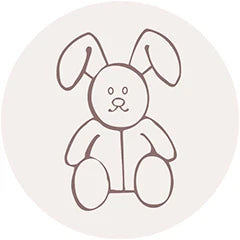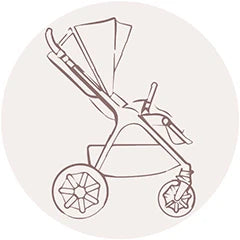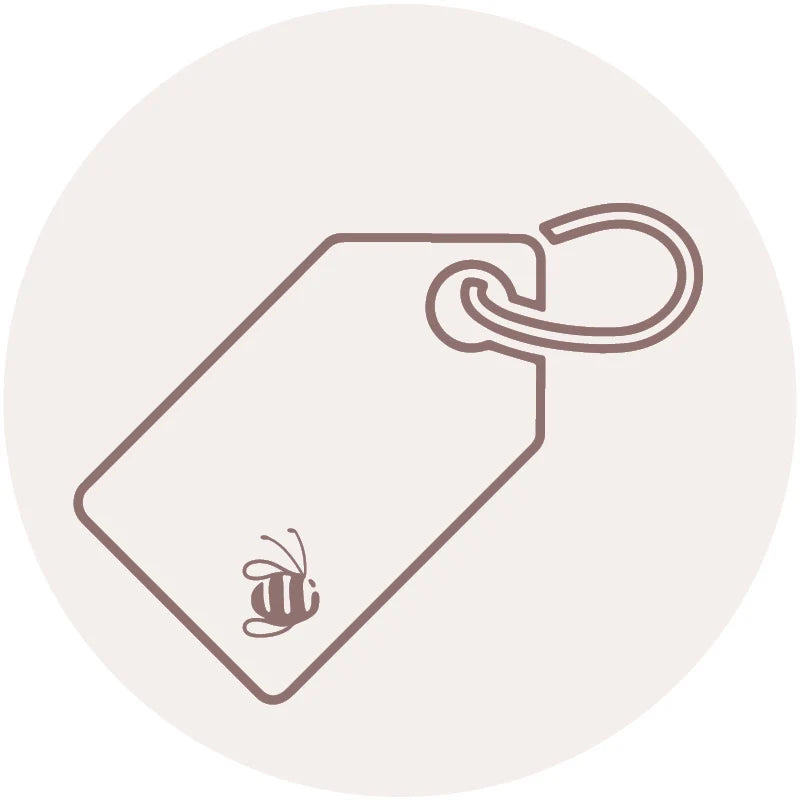Milestone Cards
Milestone Cards
SKU:MJMC
In stock
Couldn't load pickup availability
Overview
Overview
Written and designed by Lianne de Jong and Illustrated by Lee Scheepers, these Milestone Cards make the perfect addition to The Baby Book. This beautiful monochrome set is Boho and Scandinavian inspired, and includes 38 cards that you can use to capture your baby's first year in weeks, months and special moments.
Take pictures of your baby with the cards, so that you will always have the amazing memories of when they first smiled, or got their first tooth. Keep safe and treasure forever by pairing with the Baby Book.
Delivery and Returns
Delivery and Returns
- Delivery: Free within NZ on orders over $100 (excluding bulky items) or $8 standard shipping
- Returns: Accepted within 14 days of receipt with proof of purchase
- Some items are excluded from returns including sale items, hardware, car seats, prams, monitors and personal items - please click here for the full list.
Share this product
Recently Viewed Products
Related Blogs
Remembering the Precious Times
The days are long but the years go fast! When you’re deep in the baby days, it can feel like time is crawling – but somehow, those tiny toes and gummy smiles slip by in a blink. One minute they’re curled up on your chest, the next they’re racing down the hallway in gumboots. It’s not always easy to stop and take it all in, but future you (and your child) will be so grateful you did. Here are seven lovely ways to capture those fleeting, precious moments. Here are 8 ways to hold onto those little moments ❤️ 1. Keep a journal from bump to babyPregnancy is a season you’ll never forget – and yet, somehow, the details get fuzzy. A journal makes it easy to jot down milestones, memories, and feelings throughout pregnancy and those early newborn weeks. Whether it’s the first kick, a dream you had, or your late-night list of baby names, these snippets will one day become priceless. 2. Save those tiny printsLittle hands and feet don’t stay little for long. A casting kit or impression set is a beautiful way to preserve the size of your baby’s hand or footprint in time. If you’d prefer something bigger, the Petit Artichaut Baby’s First Year Memory Frame is a beautiful alternative – designed to showcase a photo from each month of your baby’s first year alongside a cast or print. It’s a keepsake you’ll treasure forever. 3. Write them a letterIt doesn’t need to be fancy – a few lines on your phone, a scribbled note in a baby book, or an email you save for later. Writing your child letters throughout their early years is a heartfelt way to share what life was like, what you noticed, and how deeply they were loved. 4. Create a home for keepsakesFrom hospital bracelets to first curls, it’s easy to gather a box of “special things” with no real place to put them. The Petit Artichaut Imprint Box offers a charming way to store and display those first small treasures – whether it’s their first lock of hair, their first lost tooth, or something uniquely your own. 5. Capture quotes and milestonesThe things toddlers say are often hilarious, surprisingly insightful, and unforgettable – until they are. A memory jar in the kitchen or a simple notes app on your phone makes it easy to jot them down in the moment. These snippets of daily life will bring the biggest smiles down the track. 6. Frame the moments that matterPhotos on your phone are great, but there’s something special about seeing them every day. The Petit Artichaut Duo Frame is a lovely way to frame meaningful images – maybe their first bath and first birthday, or a newborn photo alongside your ultrasound and a space for a foot or handprint and a clay model of those little hands or feet too. It’s a gentle reminder of just how far you’ve both come. 7. Record it all in a baby record bookFor a classic, timeless way to record milestones, the Your First Years Book or the Peter Rabbit Baby Book are both beautiful choices. These charming books offer space for photos, memories, and all the little details you’ll want to remember, from their first smile to their first steps. With prompts to help you capture key moments, it’s a keepsake that will take you down memory lane for years to come. 8. Record a second a dayApps like 1 Second Every Day make it incredibly easy to film one moment each day and turn it into a time-lapse of your baby’s growth. It’s simple, low-effort, and incredibly powerful – especially when the year wraps up and you get to watch your tiny newborn become a confident little human. There’s no right or wrong way to capture the early years – only what feels right for you and your family. Whether it’s snapping a quick photo, scribbling a sweet moment in a notebook, or tucking away a tiny hospital bracelet, each memory adds to the beautiful story you’re creating. These baby days pass in a blur, but the little things you save along the way will become treasured reminders of just how much love and magic filled those early moments ❤️
Learn moreUnderstanding The Psychology Of Potty Training Toddlers
Potty training isn’t just about learning a new skill - it’s a big emotional and developmental milestone. Understanding what’s happening in your child’s mind can transform the experience from a power struggle into a confidence-building journey.
Learn moreTop 10 Gift Ideas for New Parents
Need a gift for new parents (and their little one)? Unless you’re in the thick of newborn life yourself, it’s not always obvious what will actually be helpful. If they have a registry, great. But if not, that’s where we come in, with thoughtful gift inspiration to help you show up in a meaningful way during this beautiful but often overwhelming season.
Learn moreHow to Choose a Cot Mattress
It’s fun to think about decorating the nursery and choosing cute outfits for your little one to come. But what about the mattress? Choosing a cot mattress is a big deal (especially when they can spend up to 16 hours a day sleeping), but it’s so often overlooked when planning the nursery.
Learn more














